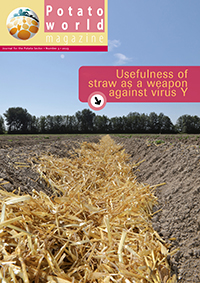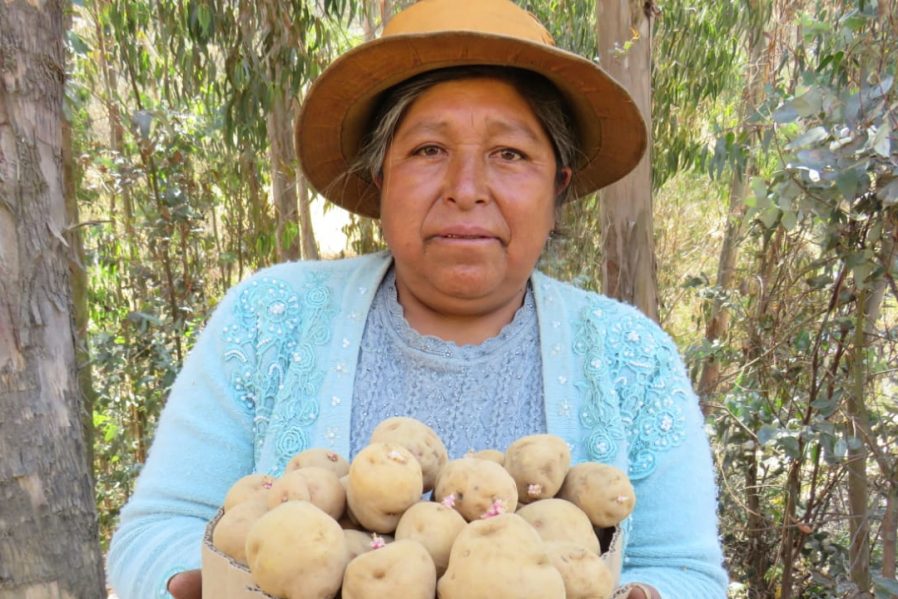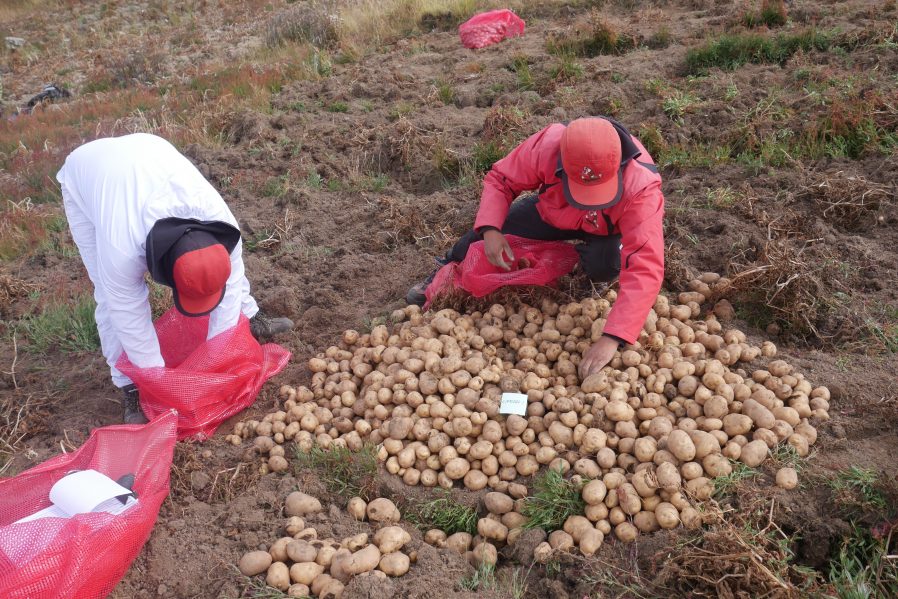Already a subscriber? Activate your premium account

Potatoworld Magazine

As CIP prepares to release a potato variety with almost complete resistance to late blight, Peruvian farmers will soon have a new option for dealing with this devastating disease.
The new potato variety CIP-Matilde, developed by the International Potato Center (CIP) with support from Crop Trust, is the latest example of using the wild relatives of crops to adapt agriculture to new threats.
The CIP-Matilde is named after scientist Matilde Orrillo, who pioneered CIP’s use of wild species in potato breeding in the 1980s. The new variety is the product of a breeding effort that crossed wild potatoes with cultivated ones, to produce commercially viable potatoes that are able to withstand late blight. ‘Potatoes grown all around the world are threatened by this wind-borne disease that can destroy a field of plants in a matter of weeks. Though this disease is widely controlled with agrochemicals, millions of farmers are unable to afford or apply them as often as needed, resulting in about USD 14 billion in crop losses annually, primarily in developing countries’, the CIP states.
‘Farmers needed a solution to late blight when they found its damage in potato fields in high altitude areas of the Andes that were once free of the disease’, researchers at the International Potato Center believe. In mountain areas where humid conditions facilitate late blight’s spread, potato farmers have to apply fungicides four to six times per month or risk losing their crops. Scientists predict that risk will increase as climate change transforms weather conditions, as warmer temperatures at high elevations are leading to a higher incidence of this and other diseases in places where they were not so prevalent in the past, according to CIP.
In field evaluations at ten locations, CIP-Matilde’s yields were comparable to those of Peru’s most popular potato variety, Yungay. ‘However, whereas regular fungicide applications were needed to prevent late blight from devastating theYungay fields, CIP-Matilde grew well without any fungicides’, CIP states, nothing that, liberating Peruvian potato farmers from the cost and risks of applying fungicides, the new variety is an example of the potential of using crop wild relatives for breeding climate-smart varieties, an approach that could boost food production and farmer resilience.

CIP potato breeder Thiago Mendes explains that CIP-Matilde is especially appropriate for growing conditions and consumer preferences in Peru’s Central Andes, where it will be promoted in the coming years. ‘However’, he adds, ‘this and other shortlisted candidates could also be used as parents by breeding programs in other countries for the development of locally adapted, late-blight resistant varieties.’ He explains that, while working toward the release of CIP-Matilde, CIP shared late blight-resistant potatoes with national partners in several African countries for use in the development of their own new varieties.
‘Those potential breeding parents are conserved in the CIP genebank, which can share them with a potato breeding program in any country under the Plant Treaty for use in developing late-blight resistant varieties,’ says Mendes. ‘Late blight is a major concern for potato farmers in many countries, so getting this resistance into breeding pipelines for the development of more resistant varieties is extremely important.’
The CIP explains the new, resistant variety is a result of a long-term effort to preserve, study, and use the potato’s wild relatives in breeding. Crop Trust supports this effort through its Crop Wild Relatives Project, a global initiative to adapt agriculture to climate change. ‘The release of this variety is an important milestone for the project, and I hope it will be one for many farmers as well,’ says the project’s manager, scientist Benjamin Kilian. Through its “Adapting Agriculture to Climate Change: Collecting, Protecting and Preparing Crop Wild Relatives” initiative managed by Crop Trust, the Government of Norway also supports this work.
Events
©2015 - 2024 Potatoworld | Webdesign and realisation COMMPRO